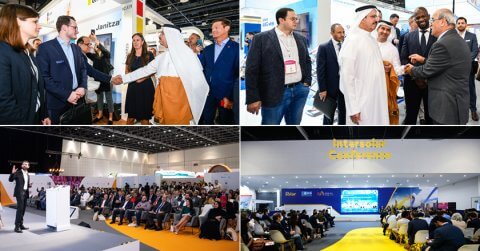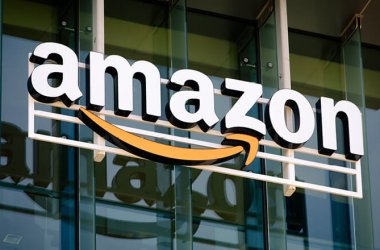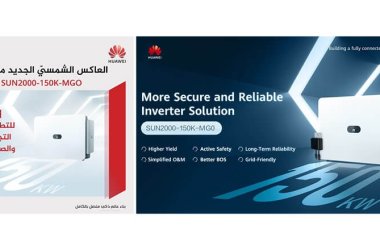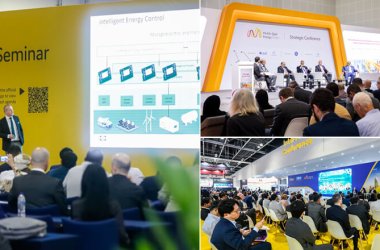
His Excellency Saeed Mohammed Al Tayer, Managing Director and CEO of Dubai Electricity and Water Authority (DEWA), officially inaugurated Middle East Energy 2023 today as more than 900 energy suppliers from across the globe started a three-day showcase of their latest innovations and new-to-market technologies.
This year marks the 48th edition of Middle East Energy, the region’s leading energy summit will explore the plans and policies set to shape the future energy outlook of the Middle East and educate attendees on the state of play of the sector. Running until March 9 at Dubai World Trade Centre, more than 35,000 energy professionals are expected to attend the event’s three separate conventions: Strategic Conference, Intersolar Middle East, and Technical Seminars.
During his tour, HE Al Tayer spoke with and gained insight into the latest products and trends from several key regional and international exhibitors, including Al Fanar and Germany’s national pavilion.
“We were honoured by His Excellency’s visit to have a closer look at our energy and electricity product portfolio, which has the slogan of ‘Investing in the Future’ in line with the UAE’s ambitious sustainable development goals”, said Waseem Yafi, Marketing Communications Manager at Al Fanar, an electrical manufacturing company headquartered in Saudi Arabia and that has been exhibiting at Middle East Energy for more than a decade. Its pavilion this year, one of 19 spread across Dubai World Trade Centre, extends more than 600 metres.
Sybille Pfaff, Consul General of the Federal Republic of Germany in Dubai, said her country has been exhibiting at Middle East Energy for “many years” yet 2023 marks its largest pavilion, with 58 companies exhibiting – an increase of roughly 20 per cent on last year.
“It was an absolute honour that His Excellency stopped by our booth”, she said. “He was particularly interested in energy efficiency with the Year of Sustainability going on this year in the UAE. The Gulf region is very important for Germany; the UAE specifically is our largest trade partner in the region and companies are looking for business from the UAE, but also the wider region”.
The opening sessions for the Strategic Conference saw Nicolas Daher, Lead Energy Analyst at the Economist Intelligence Unit (EIU) outline the present and projected both globally and within the Middle East and North Africa. Leading the production of EIU’s energy reports, Daher said the war in Ukraine has forced national policies to change focus from energy transition to energy security, delaying the phasing out of coal-fired power generation, and prompting increased investment in fossil fuels infrastructure.
In the MENA region, fossil fuels represent 98 per cent of total energy consumption, said Daher. Add to that the fact the region’s energy demands are expected to grow 1.8 per cent annually – making it the second-fastest growing region in the world after Asia – and the Middle East faces a balancing act of decarbonising while meeting increased demand.
“The strength the Middle East has is absolutely enormous,” Daher said. “It is a leader in energy thanks to the fossil fuel industry and that brings with it global power. As fossil fuels start to decline, which we believe will happen beyond 2030, the Middle East needs to retain that power, which it can do by becoming a leader in energy transition. The world is desperately looking for a climate change leader and, with the latest COP held here [in Egypt] and the next COP held here too [in the UAE], the world is clearly curious and eager to hear what this region has to say”.
Daher added that solar will lead the energy transition in the region, with Israel, Saudi Arabia, UAE, and Oman all projected to grow their solar power generation considerably in the next decade. Wind power, in contrast, is set to expand only marginally, primarily in Israel and Egypt.
Elsewhere, Intersolar Middle East looked at the growing green energy sector with a keynote from Ahmed S Nada, President of Middle East Solar Industry Association, who discussed the rapidly changing perceptions of energy in the region during the past decade.
“If we look back only 10 years, the cost of solar energy was too high, and landowners across the Middle East did not believe in the vision of creating a world-leading solar ecosystem as other fuels such as oil and gas were in abundance”, said Nada. “Things have changed much faster than anyone could have imagined, with the Middle East now poised to truly contribute to global energy security through the alternation of existing assets to renewable assets”.
“Countries such as Egypt, Algeria, Libya and Turkey are all competing to become a corridor of energy to Europe – and this is being done through collaboration, not confrontation. The Middle East will most certainly play a key role in the energy security of the future – especially in the renewable space. We are also seeing a shift in the supply chain away from reliance on China. If the impacts of COVID-19 have taught us anything, it is that supply cannot be dominated by one country, and this is why Europe is investing heavily in production, and the United States has enough market capacity and demand to justify local manufacturing”.
Azzan Mohammed, Exhibition Director, Energy Portfolio – MEA at Informa, the event organisers, said this year’s event is providing a critical platform to secure stability and identify new opportunities in the energy sector. “As we near half a century of Middle East Energy, the next three days will feature key discussions, all of which will have an integral role in developing knowledge formation and achieving the global energy markets’ goals for a sustainable future”, Mohammed said.
The 48th edition of Middle East Energy has also seen the return of its Hosted Buyer Programme, designed to facilitate direct contact between key industry stakeholders, investors, and suppliers from across the globe with more than 100 direct purchasing authorisers and influencers. The aim of this programme is to explore business opportunities and foster business development. International pavilions present this year include Germany, Italy, France, the Czech Republic, India, and Turkey.
To find out more, visit: https://www.middleeast-energy.com/en/home.html





